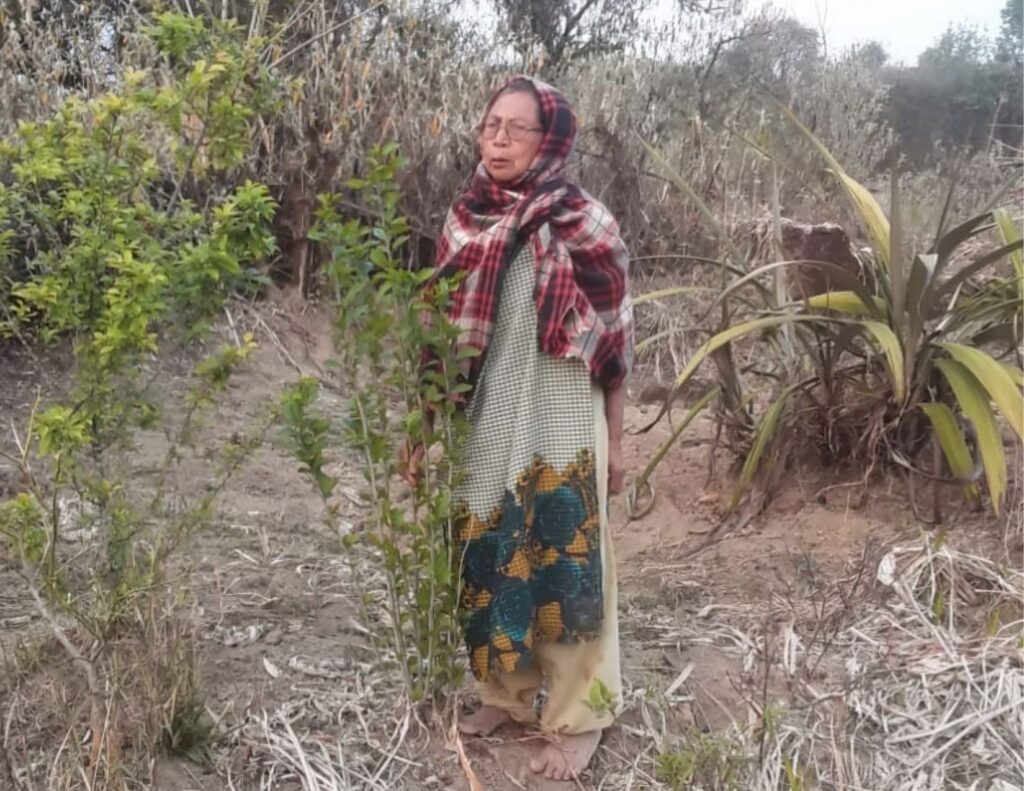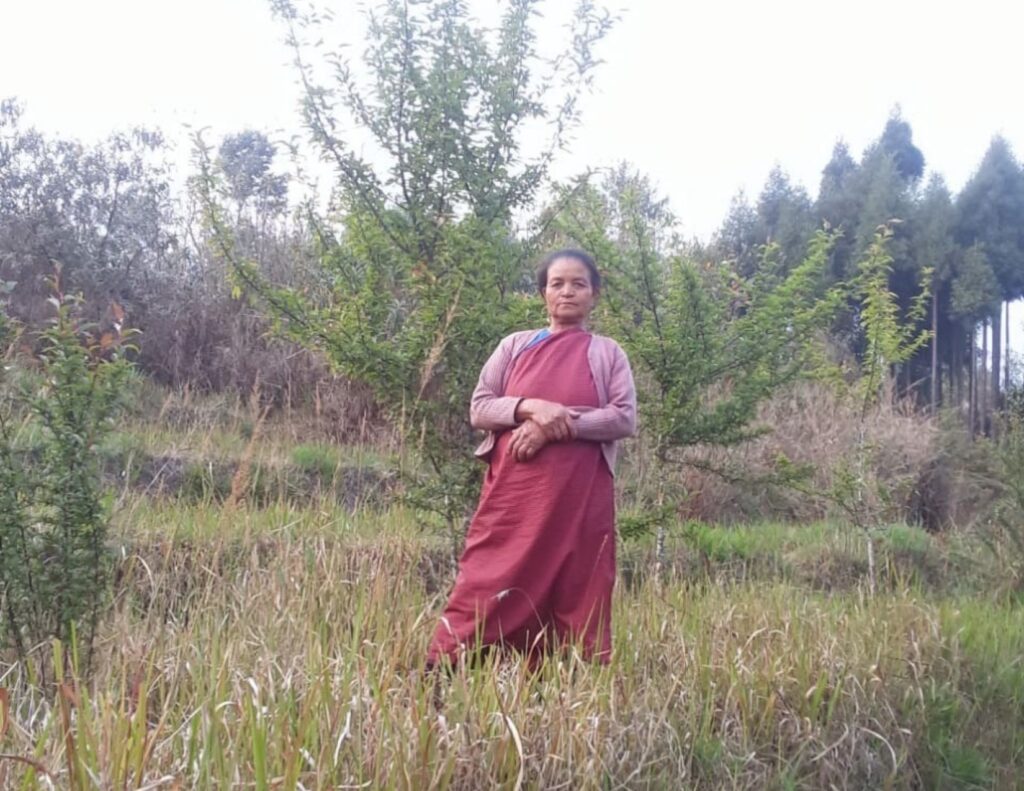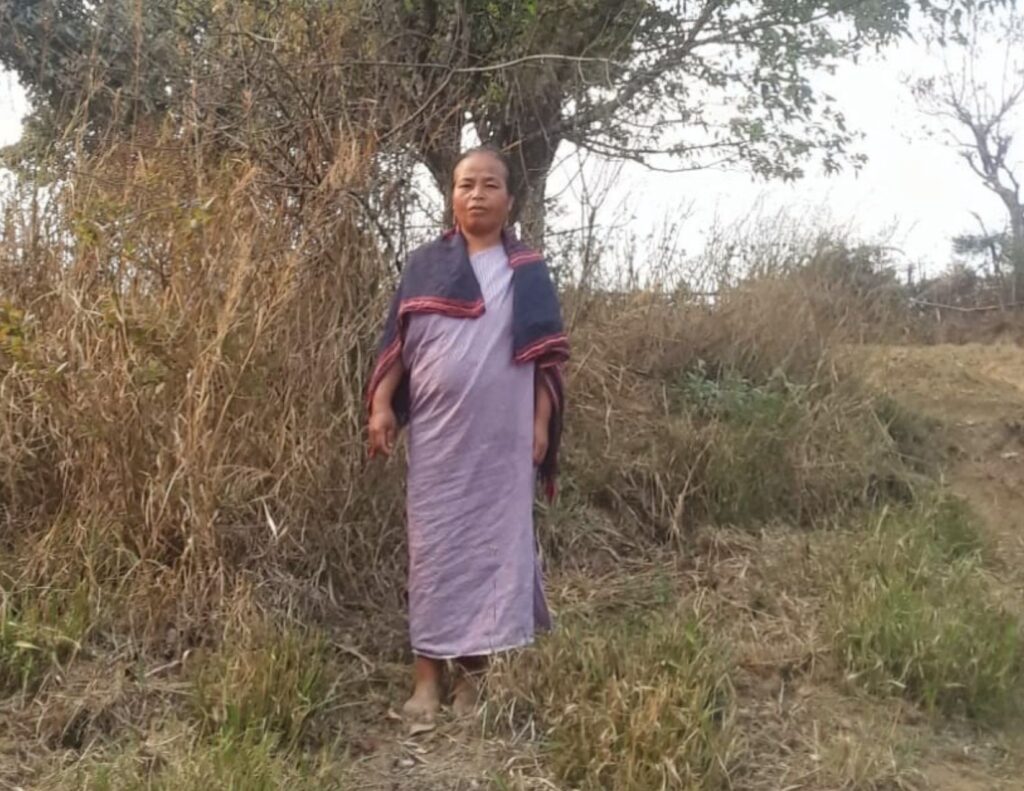After a massive wait of over three years, four farmers from Pyrda have successfully and fruitfully been able to organically harvest potatoes after the intervention of NESFAS back in the year 2018; they have reversed and renewed their ways of farming which has led to bountiful benefits.
Kong Phultina Ryndem, 31; Alvarine Kharnaior, 42; Kong Tielis Nongrum, 63; and Kong Spermon Kharnaior, 68; are the four path-breaking farmers who decided to do away with inorganic methods and adopt a more sustainable and economically and environmentally beneficial mode of farming. Although there was a decline in the yield of potato in the initial years, after persistent use of only organic inputs, the yield saw gradual acceleration.
These farmers faced a lot of roadblocks initially when it came to reverting their ways of inorganic farming as usage of chemical fertilisers gave them faster results; they were of the idea that without the use of chemical fertilisers, their crops would be completely destroyed. This is when Kong Spermon Kharnaior realised that using these inorganic means is leading to the degradation of the soil and the quality of the crops in the long term. She realised that to preserve the health of those consuming these crops and to further the fertility of the soil, it was imperative to go back to the roots and reestablish the use of natural compost and a more traditional farming outlook.
“I would like to encourage my fellow farmers to practise traditional farming and to avoid the use of chemicals for a sustainable livelihood and for better soil health so that it can bring out good production.” – Kong Teilis Nongrum
Since then, these farmers have worked tirelessly to bring back the laurels of the past and create a sustainable farming environment for themselves and propagate this idea to everyone around them. Through a training conducted by NESFAS in 2015 on Agrobiodiversity and identification of wild edibles, they gained several ideas on how to scale up their farming practices without any inorganic means.
However, this re-establishment came with a prominent advantage and disadvantage; although consumption of organic produce is great for health, tastes better and improves the quality of soil, the farmers had a difficult time increasing production, and they had to engage themselves in other daily waged chores to make ends meet. Moreover, the potatoes harvested via this method were too small and were enough only for the consumption of the farmers’ families and there wasn’t enough left to sell. Hence, to continue this practice it is absolutely crucial for more farmers to adopt the same.
“I have recognized that the production is less in my kitchen garden as compared to growth in the fields and the only challenge I have encountered is that there is less production which has stopped me from selling in the market.” – Kong Phultina Ryndem
“I would encourage our fellow farmers to follow the same practices of traditional farming because it can strengthen our livelihood not only for a short period of time but for the long run.” – Kong Spermon Kharnaior
 Translate
Translate







